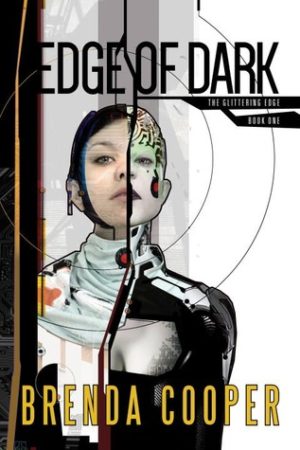The Intersection: Ghosts in the Genre Machine

The other day I heard a rumor about DC’s future plans for Wonder Woman that really pissed me off: the writers are considering ‘shipping Wonder Woman with Bruce Wayne. On the surface, that sounds harmless enough—that is, until you consider this thing called “context.” With that in mind, I’m going to make an unambiguous statement. Repeatedly demonstrating via story (in media and literature) that women are not complete beings without being in a relationship with a man is damaging. It props up patriarchal narratives on the non-value of women. It reduces them to one fate: being the property of a man. “OMG! How can you say that, Stina? Aren’t you married?” Why, yes, I am. I’m all for relationships in general. They make humans more empathetic. We don’t live in a world filled with an overabundance of love and empathy. Let’s have more, please! Confused? Let’s go back to that ‘context’ word. You see, there’s a reason that two of the most powerful fictional women on television when I was a child (Samantha from Bewitched and Jeannie from I Dream of Jeannie) had their powers taken from them and/or were severely restricted when they married.
Signal Boost #8: A Conversation about the Importance of Wonder Woman

http://media.blubrry.com/skiffyandfanty/dts.podtrac.com/redirect.mp3/archive.org/download/SandFSignalBoost8OnTheImportanceOfTheWonderWomanFilm/Sandf–SignalBoost8–OnTheImportanceOfTheWonderWomanFilm.mp3Podcast: Play in new window | DownloadSubscribe: Apple Podcasts | Spotify | Android | iHeartRadio | Podchaser | Podcast Index | Email | TuneIn | Deezer | RSSIn today’s episode of Signal Boost, Shaun and Jen discuss the importance of the new Wonder Woman film succeeding — both for the representation of women in front of and behind the silver screen. Don’t forget to wait for this week’s boosts at the end! We hope you enjoy the episode! Note: If you have iTunes and like this show, please give us a review on our iTunes page, or feel free to email us with your thoughts about the show! Here’s the episode (show notes are below):
#37. Ex Machina (2015) — A Shoot the WISB Subcast

http://media.blubrry.com/skiffyandfanty/dts.podtrac.com/redirect.mp3/archive.org/download/ShootTheWISB37ExMachina/ShootTheWisb37–ExMachina.mp3Podcast: Play in new window | DownloadSubscribe: Apple Podcasts | Spotify | Android | Email | TuneIn | Deezer | RSSThe Turing test, eccentric billionaires, and the singularity, oh my! In this special edition of Shoot the WISB, Alex takes Shaun and Paul on a journey through Alex Garland’s directorial debut, Ex Machina. We explore the film’s treatment of AI, its themes, its women, and much more! We hope you enjoy the episode! Note: If you have iTunes and like this show, please give us a review on our iTunes page, or feel free to email us with your thoughts about the show! Spoiler Alert: the following podcast contains spoilers for the film being reviewed; if you wish to see the film without having it ruined for you, download this podcast and save it for later.
264. Writing the Other / Writing the Self Panel w/ Nalo Hopkinson, Susan Jane Bigelow, Keffy Kehrli, & Kate Elliott

http://media.blubrry.com/skiffyandfanty/dts.podtrac.com/redirect.mp3/archive.org/download/SandFEpisode264WritingTheOtherWritingTheSelf/SandF%20–%20Episode%20264%20–%20Writing%20the%20Other%20-%20Writing%20the%20Self.mp3Podcast: Play in new window | DownloadSubscribe: Apple Podcasts | Spotify | Android | iHeartRadio | Podchaser | Podcast Index | Email | TuneIn | Deezer | RSSThe world, the people, and the mistakes, oh my! Nalo Hopkinson, Susan Jane Bigelow, Keffy Kehrli, and Kate Elliott join us to talk about the dos and don’ts of writing people who are not like ourselves (and vice versa). We hope you enjoy the episode! Note: If you have iTunes and like this show, please give us a review on our iTunes page, or feel free to email us with your thoughts about the show! Here’s the episode (show notes are below): Episode 264 — Download (MP3) Show Notes:
Guest Post: On sniping, women, and SF by Brenda Cooper

There’s a lot of sniping going on across genders in our field. Vitriolic sniping. Shame on us. Yes, science fiction is largely male dominated. So are a lot of fields. I know. My day job is in technology, where I’m a c-level exec. It wasn’t necessarily easy to get here even though I live in the liberal bubble of the West Coast where it’s easier than it is in a lot of places. I’ve been living this conversation my whole life across multiple fields of endeavor. Yes, it sucks. Yes, it needs to stop. But sniping isn’t the answer. Mind you, I’d be fine with sniping if it worked. It’s kind of fun. But as far as I can tell, it’s not effective. Yes, there are truly evil men out there in the midst of the current social fights, like whoever issued the death threats to women writing about feminism in the game world. This is not an article about how to deal with them. Jail time would be a great start.
Diversity in SF Film: Things to Come (1936)
This is my third post on diversity in Science Fiction films. I started with Metropolis (1927), and then skipped two decades to The Day the Earth Stood Still (1951). Largely, my reason was that there weren’t any options for the 30s or 40s available on Netflix. Apparently, there aren’t very many SF films within that twenty year period.[1] I’ve decided to skip Frankenstein — although the novel is one of the first, if not the first, SF novels — because the classic film has more in common with horror than SF. I feel much the same about King Kong. Therefore, I settled on Things to Come (1936), which is based upon the H.G. Wells’ novel published in 1933 entitled The Shape of Things to Come. I know I’m risking a bit of confusion by going backward here, but I felt it was too important to skip. Also: keep in mind that I don’t think I read the novel. At least, I don’t remember having read it.[2] So… Things to Come.

